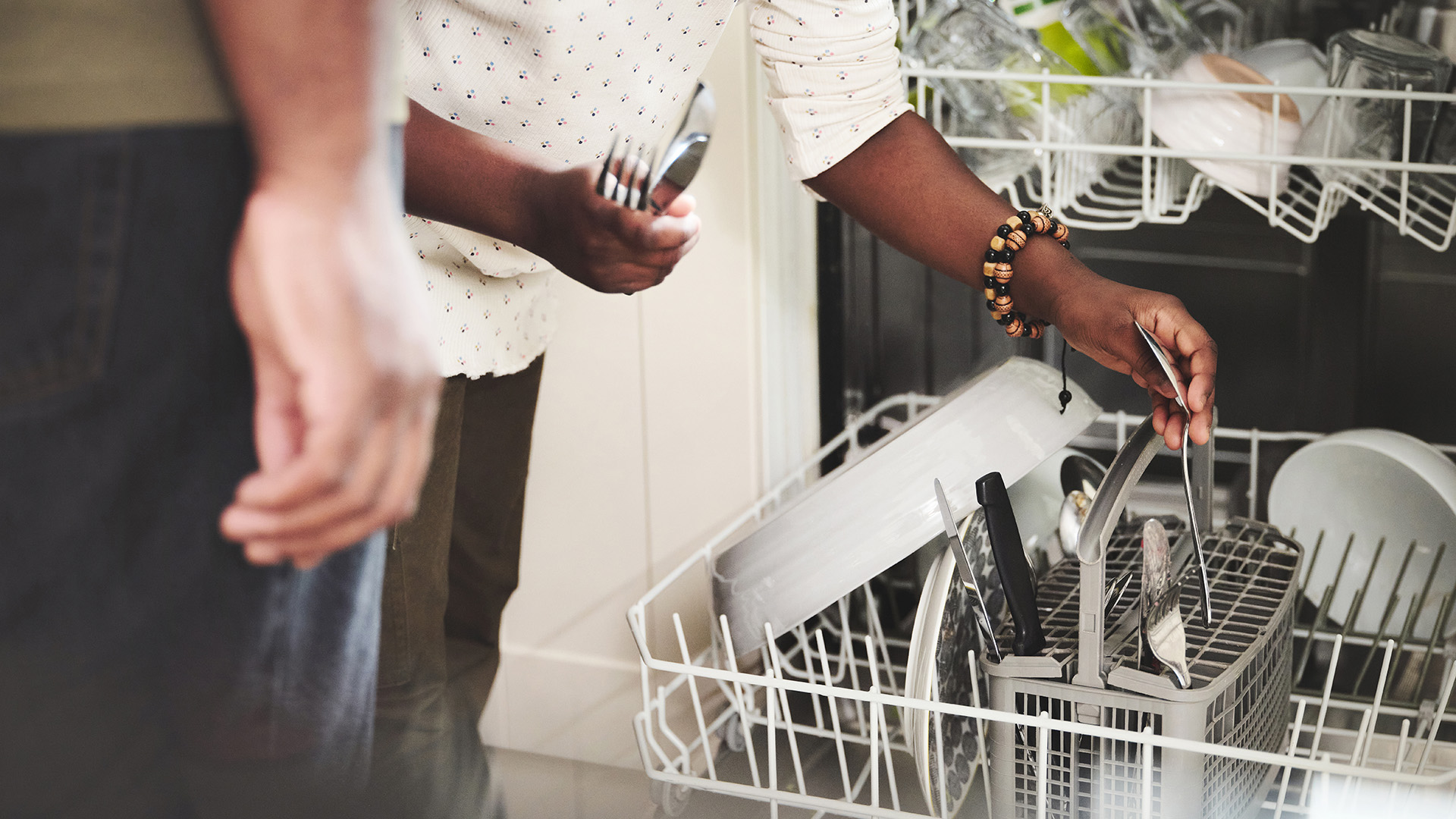
Keeping your dishes clean is one of the most important household tasks you complete, largely because of how often you have to do it. The best dishwashers are great for lending a helping hand, but while it can seem like a simple chore, there are a handful of essential dishwasher do's and don'ts that will make your crockery sparkle and cut the time you spend cleaning.
Whether you've specifically chosen one of the largest dishwashers or one of the quietest dishwashers, this doesn't necessarily mean your dishes will automatically be cleaner. Instead, you should be paying attention to a few simple 'rules' that will ensure you're using your machine to it's full potential.
So, from making sure you load it just enough but not too much, to cleaning it properly, we've enlisted the help of the experts at LG for their top dishwasher dos and don'ts. Don't be daunted by the list as they're all easy switches to make to your routine, so you can go right ahead and get started on your next cycle.
1. Don't overload
You might think it's best to stack as much as possible in your dishwasher. It's easy to think that this is the best option for saving energy and money and you would be right, but this means you're unlikely to achieve a full clean, and might result in having to hand wash or run another cycle.
David Palmer, Senior Product Specialist at LG, says, "If you put too much inside your dishwasher, some items will block others. Allow enough space for effective cleaning by making sure nothing clangs together when you give the racks a little shake test."
Although some people might have their particular methods, there's actually no right way to stack a dishwasher. Simply focus on giving each utensil or piece of crockery the space it needs to get a good clean.
2. Don't overdo detergent
If you buy dishwasher pods you might not have this issue, but if you use liquid detergent you might actually be using too much. More detergent doesn't equal a better clean, and it only costs us more money.
David notes that, "it can scratch dishes or result in cloudy glasses or visible spots. A simple hack for this involves placing a bowl full of vinegar on the top rack before a cycle, which acts as a rinse aid and combats water staining."
Ultimately, keeping a cleaning routine pared back is the best option for achieving squeaky clean dishes, so consider limiting your detergent use on your next cycle.
3. Don't worry about loading pattern
Like we mentioned above, the way you load the dishwasher has little impact on how well it performs. For most dishwashers, the sprayer arm works from the middle out, so the main thing to focus on is facing your dishes into the center of the machine. Other than this, you can place your dishes in any area you so wish - so ignore anyone who starts to get picky about your loading habits.
4. Do use rinse aid
Rinse aid is something that has left me dumbfounded before - it's often unclear what it achieves and sometimes feels like just another product to purchase.
It actually helps your dishes dry quicker, which is helpful if you're skipping out on a heat cycle to save energy. You might find that your dishes are left dripping wet at the end of a cycle, so using rinse aid will help to prevent this so you can put them back into your cupboards immediately.
This will also help you to use shorter cycles, saving energy and cutting household bills.
5. Do run a cleaning cycle
As much as it would make life easier, cleaning appliances such as dishwashers, washing machines and dryers don't fully clean themselves. Keeping on top of dishwasher maintenance and cleanliness will provide much better results on a daily basis, and it isn't a long or laborous task.
Over time, dishwashers collect remnants of food, soap residue and gunk that needs to be wiped away in order to keep the machine running properly.
David Palmer recommends to "clean your appliance every 30 cycles to ensure your dishwasher can perform at the best of its ability." Whether this is with an empty hot water cycle, a bowl of white vinegar, or by removing the filter, it's good to factor this into your weekly or monthly cleaning routine.
6. Don't run it when it's not full
When the time comes to give your kitchen a full clean, it can be tempting to turn the dishwasher on to tick off all the the jobs at once - even if there's only a few plates in it.
Running a half-empty dishwasher might just be the worst thing you can do for the environment and your budget, so try to steer away from pressing that on button. Instead, wait until you have a full load or even utilize a half-load or eco setting, so you're not wasting water on a couple of pieces of cutlery.
Discover our latest home appliance shopping guides...
Best washer-dryer combos
Best top-load washers
Best over-the-range microwaves
Best French door refrigerators







